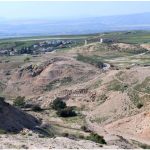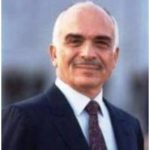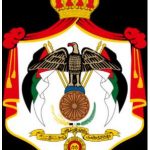Administration
Formal state structure, regional structure
At the head of the Jordanian state is the king. He is the head of the state and the army. He appoints the prime minister. Administratively, Jordan is divided into 12 governorates (Arabic muhaafasa), each of which is subordinate to a governor (muhaafis) selected and appointed by the king: Amman, Zarqa, Ma’an, Irbid, Balqa, Tafila, Kerak, Mafraq, Jerash, Madaba, Ajlun, Aqaba. The provincial governors are responsible to the king and are mainly responsible for internal security and the maintenance of law and order. The 12 provinces are further divided into districts (Arabic liwaa ‘/ pl. Alwia) and sub-districts (qadaa’).
Regional and municipal responsibilities
In the course of so-called decentralization, the regional and municipal administration in particular should be strengthened. Until 2017, the regional councils that were supposed to advise the respective governor were not elected, but appointed. The decentralization law ratified by the King in December 2015 provides for greater representativeness for the regional councils. However, under pressure from the King, the planned provision of its own budget was removed from the draft law.
The number of independent municipalities has been reduced from 300 to 93 in recent years and has now increased to 101. From a legal point of view, the municipalities (arab. Baladiyat) in Jordan are similar to associations. According to the law, the main tasks of the city administrations are certain services such as garbage collection and sanitation.
According to computerannals, the municipalities in Jordan can generate income such as business tax and property tax, but they do not have independent budget rights. The budgets are set by the Ministry of Finance and the Ministry of Local Affairs. Therefore the municipalities hardly have their own planning options. A large part of the allocated budget is spent on personnel costs.
A big problem is the enormous debt of numerous municipalities in Jordan, as an article on the Jadallyya portal about the city of Zarqa impressively documents.
As part of the so-called decentralization or deconcentration, the city administrations should be given more autonomy in financial matters and local self-government should be strengthened. However, the delegation of responsibilities to the regional and local level has so far made little progress despite high investments in the promotion of municipal decision-making powers and citizen participation. As before, most of the regional / municipal relevant decisions are made in the relevant ministries (health, planning, etc.) in Amman.
The mayors and village chiefs in Jordan used to be directly elected by the people. In the course of the city and community reforms, it has meanwhile been decided that the mayors and half of the city councils will no longer be elected for the foreseeable future but will be appointed by the central government. The remaining 50% of community and city councils should continue to be elected directly every four years. The declared goal was to counteract clergy and clientelism. In fact, it was probably also about curbing the influence of the Islamists, whose candidates have much better chances in local elections than in national parliamentary elections. In the 2017 elections, city councils were again directly elected (except in Amman).
Law, public order and state security
Legal system
The legal system in Jordan is divided into three parts:
- Secular law – includes, among other things, commercial and criminal law, which is based on European models
- Religious law – this concerns civil status law (marriage, divorce, inheritance law, etc.), for which the respective religious communities are responsible. The background is the Ottoman Millet system
- Customary law – this law is applied regionally, especially by Bedouin communities, and only as long as no outsiders are affected.
In terms of the rule of law and good governance, Jordan shows considerable deficits. The political system is shaped by personal dependencies and client relationships. Locals and foreigners alike complain about “Wasta”, the Jordanian variant of nepotism. On the global scale of “perceived corruption”, Jordan has improved and is currently in the upper midfield. The political scientist Yazan Doughan takes a critical look at this perception in a GIGA study from autumn 2017 and points out that many people in Jordan do not understand corruption to mean payments of money, but rather the dependence on personal relationships (vitamin “B”) to reach.from Transparency International reports that Jordan is still one of the countries in which citizens feel particularly badly affected by corruption. Many Jordanian business people and entrepreneurs complain that “wasta” and a badly functioning bureaucracy distort competition and thus paralyze entrepreneurship. The occasional lack of neutrality of the judiciary is also problematic: Anyone who comes into conflict with politically influential business partners cannot always rely on the independence of the judges.
Public order and security
The Public Safety Department (PSD) is responsible for national public safety. The PSD’s headquarters are in Amman. The agency is usually headed by a high-ranking former member of the military who is directly responsible to the Ministry of the Interior.
The structure of the Jordanian police is divided into three parts:
- Municipal Police
- Rural Police
- Desert Police or Royal Desert Police (mainly Bedouins, the staff has been greatly increased in recent years)
Police and border officials in urban and rural areas wear blue uniforms. The members of the royal desert police wear olive-colored uniforms and traditional headgear. The desert police use both jeeps and camels as a means of transport.
Since 1972 women have also been admitted to the police force in Jordan.
Another police unit, the so-called Special Police Force (SPF, also “Darak”) is responsible for counterinsurgency and for securing diplomatic missions and foreign guests.
The secret service (General Intelligence Department, Arabic “Mukhaabaraat”) is entrusted with espionage and the fight against terrorism. He is directly under the command of the king.








